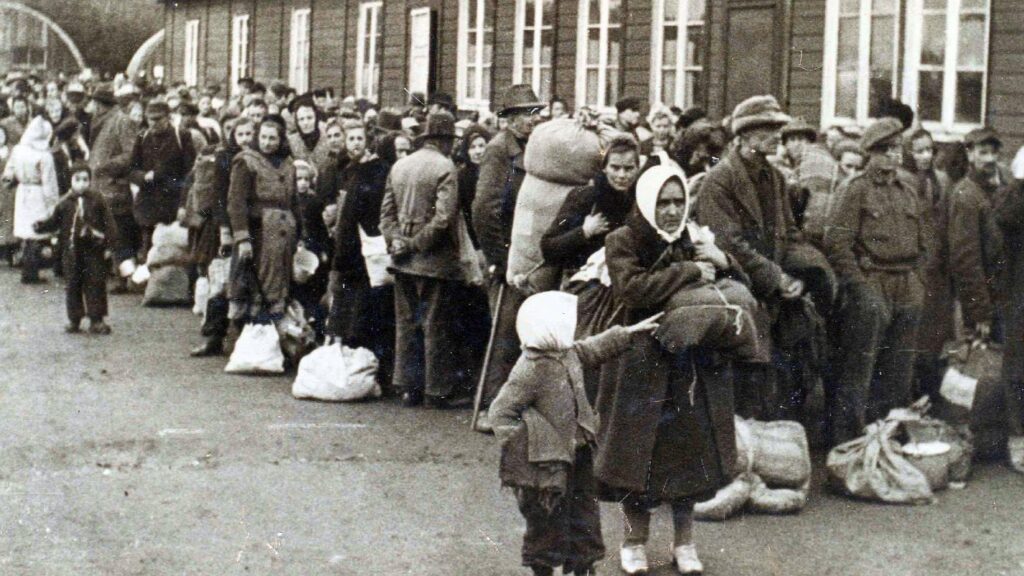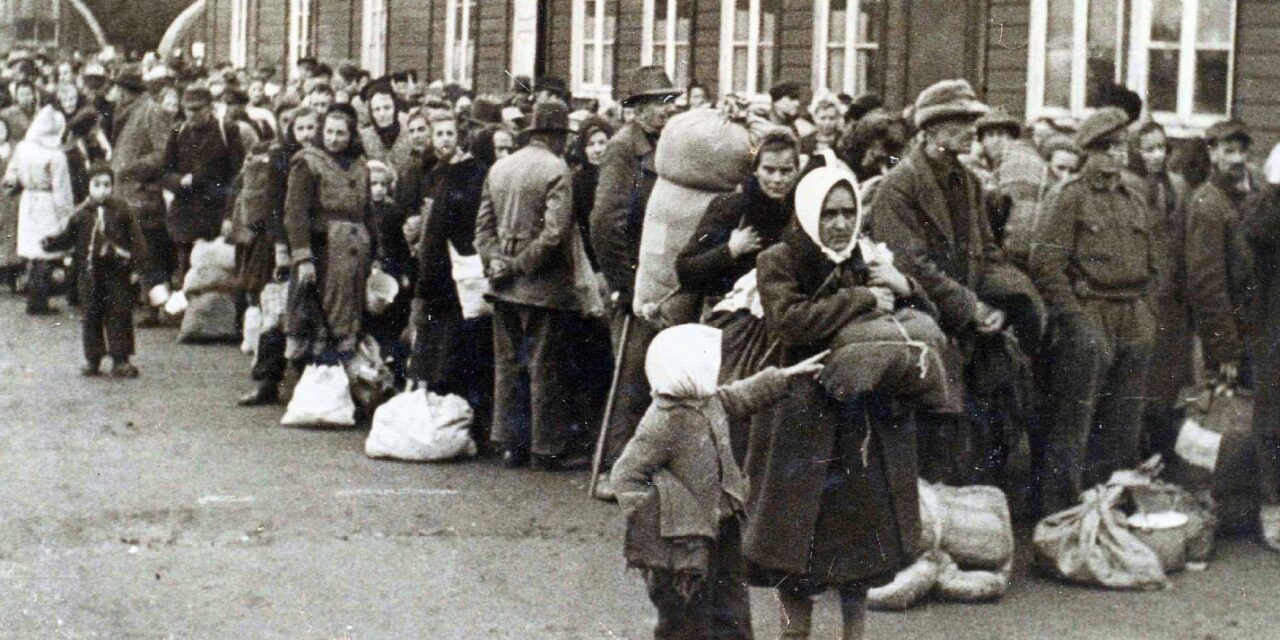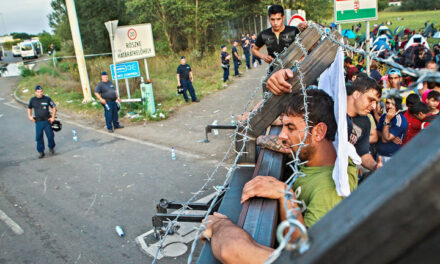Collective guilt is totally unacceptable. 78 years ago, on January 19, 1946, the first train carrying Hungarian Germans sentenced to deportation left Budaörs.
The so-called organized and humane resettlement of Germans was an evil deed against humanity, a crime, stated the State Secretary of the Prime Minister's Office responsible for church and ethnic relations on Friday in Márkó, Veszprém county, after the mass held on the occasion of the commemoration of the deportation and expulsion of the Germans from Hungary, reports MTI.
Miklós Soltész emphasized: collective guilt is completely unacceptable.
The state secretary emphasized: the devastation of the First and Second World Wars, the dictates that followed them - which cannot be called peace negotiations - and the two terrible ideologies - national and internationalist socialism - caused the suffering and misery of millions.
Ibolya Englenderné Hock, the president of the National Self-Government of Hungarian Germans, said at the commemoration: on January 19, 1946, the first railway train left the Budaörs railway station with Hungarian citizens of German origin who were humiliated, deprived of their rights and property. The country they chose centuries ago failed them, he said.

The other decisive factor in the evolution of the situation of the Germans in Hungary was the change in domestic political conditions
SOURCE: FORTPAN
Profiteering also played a role in the post-war resettlement of Germans in Hungary
On December 17, 2013, the Parliament declared this day as the day of commemoration of the deportation and expulsion of the Germans from Hungary, reports mult-kor.hu .
On December 22, 1945, the decree on the removal of the Germans from Hungary, who were declared to be the fifth column of the Third Reich, "Hitler's accomplices", and on the state taking possession of their property.
The decision was hoped to solve countless domestic and foreign political problems: the facilitation of land distribution, the resettlement of Hungarians driven from across the border by the "little winners", and the creation of an ethnically homogeneous nation-state.
Although the domestic German-speaking population had a rather mixed composition in terms of religion, political affiliation, and social and financial status, the new narrative highlighted the most negative examples that occurred during the war and portrayed the entire domestic German minority as joining the Nazi Volksbund and then actively working with the occupying German troops. set it up as a collaborative, united crowd representing the opposite of Hungary's interests.
It can be stated that this example of ethnic cleansing largely came from the same source as the persecution of Jews that had ended not long before: the state targeted a more or less definable element of society in which many of the members of the majority society saw the opportunity to profit.
The collective responsibility of the population began even before the end of the fighting in Hungary, in March 1945 (and the Soviet troops dragged Germans away for forced labor even earlier due to their origin), however, the state also soon sanctioned this discrimination - for example, by the spring 1945 farmers of German nationality were left out of land distribution, and a significant part of their land was nationalized for the purpose of distribution.
In the end, between 1946 and 1948, 220,000 to 230,000 people, half of the domestic German population, were deported according to the decision. The deportation officially applied to those who declared themselves to be native German speakers in the last census in 1941, or who could be proven to be German speakers, or those who joined the Volksbund, founded in 1938, or the SS belonging to the Nazi Party, many of whose units were sent to Germany during the war. He was recruited from among the "people's Germans" (Volksdeutsche) outside Germany.
Despite this, a significant proportion of the evicted did not meet any of the criteria - in many cases the non-German community of the town or village, as well as its officials, closed in on people they did not like, of German nationality or origin, who were added to the list in this way.
Even so, the conditions were intentionally rough: the Volksbund, although clearly linked to the Nazi state, was nevertheless an officially established organization of Germanness in Hungary, and the vast majority of its members did not join for ideological reasons, but to participate in community life.
Of those who served in the units of the Waffen-SS instead of the Royal Hungarian Defense Force, it cannot be clearly stated that they were driven by ties to Nazism: from 1944, from the beginning of the occupation, the SS also carried out conscription in Hungary among German nationals (and Hungarians during the Arrow Rule were also recruited or units were transferred from the Honvédség to the SS), so it cannot be said that even the majority of Germans in Hungary acted voluntarily.
The resettlement took place in two stages: between January and July 1946, 120,000 Germans were transported from Hungary to the American-occupied zone of Germany, i.e. to the later West Germany. This wave of evacuations was stopped due to the protests of the American authorities here, who were dissatisfied with the conditions of the operation.
In the second phase, during 1947 and 1948, approximately 100,000 people were deported to the Soviet occupation zone of Germany, the later GDR. Of the 640,000 acres of land previously owned by Germans in Hungary, about 500,000 were used during the land distribution, and only 15,650 of the 60,400 houses remained owned by Germans.
Cover image: The other decisive factor in the development of the situation of Germans in Hungary was the change in domestic political conditions
SOURCE: FORTPAN












